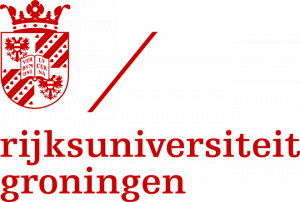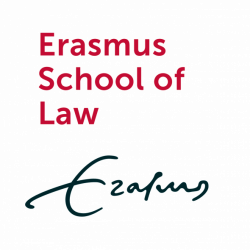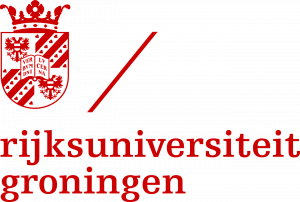The Public-Private Challenge
Erasmus School of Law and the Faculty of Law of Groningen University have joined forces in the ‘The Public-Private Challenge’, addressing cross-cutting societal challenges across various levels of governance (local, national and international), across various disciplines (public and private law, economics, criminology), both empirical and doctrinal, and across various sectors (ecology, health, finance, technology) to guarantee an integrated approach to the study of public and private interests.
Upcoming event
Conference ‘Law in the Age of Transitions: Public Interests and Private Powers’
Next April 3-4, the 2025 conference of the “Public-Private Challenge”, a joint research initiative of Erasmus School of Law and the Faculty of Law of the University of Groningen, will take place in the beautiful city of Groningen. The theme of the conference will be “‘Law in the Age of Transitions: Public Interests and Private Powers’.
The conference will focus on the role of law in structuring two key transitions that play a defining role in this emerging socio-economic organisation: the digital and the green transition. Developments in these fields have been rapid, with legislative initiatives like the Digital Markets Act, the Digital Service Act, the Net-Zero Industry Act, or the Critical Raw Materials Act having far-reaching ambitions and shaking-up the political economy of the Union. Drawing from this transformational spirit, this conference concentrates on how law reinterprets the public-private challenge and revises the balance between public and private actors. In other words, how does the law restructure claims and burdens, rights and entitlements between private and public actors in these emerging transitions?
For the full programme and registration follow this link.
Recent publications
The chapter reflects on the relationship between human rights discourse and populism from a politico-philosophical and socio-legal position. In this perspective, human rights and politics are closely linked. These rights are vocalized in the political process and mediated by social institutions. Contemporary populism is founded on the moralistic imagination based on an axis of elite-population division that leads to the necessity of a social transformation within which power and social resources will be redistributed. At the same time, such political rhetoric and practice emphasize its democratic character, which distinguishes it from simple authoritarianism. This leads to populism acceptance, at least rhetorically, of the universalist human rights discourse with the simultaneous need to change its content. The populist regime of Law and Justice (Prawo i Sprawiedliwość) in the years 2015–2023 in Poland provides a useful case study in this regard. Populism’s attitude towards human rights is not explicit and does not consist of simple rejection. Populism instead redefines the relationship between the community and individual rights through rhetoric that violates minority rights and policies that strengthens social rights and distributes recognition based on national identity. As a result, populism pursues its own, different from (but grown out of) liberal, more republican politics of human rights.
Available at: DOI:10.5553/ELR.000256
Een analyse van Gerechtshof ’s-Hertogenbosch 6 september 2022,
ECLI:NL:GHSHE:2022:3091 (Pand uit 1948 met energieprestatiecertificaat F).
De verkoper en de aankoopmakelaar worden aangesproken in dit arrest (gerechtshof ’s-Hertogenbosch 6 september 2022, ECLI:NL:GHSHE:2022:3091 (Pand uit 1948 met energieprestatiecertificaat F)) door de consument-kopers wegens non-conformiteit en schending van de zorgplicht. Deze zaak is met name interessant met het oog op de gedane mededelingen en de relatie tot het verstrekte energieprestatiecertificaat bij de koop van de woning. In de huidige tijd, waarin de kosten voor energie steeds belangrijker worden, is het interessant of consument-kopers de verkoper en aankoopmakelaar kunnen aanspreken in verband met de verwachtingen omtrent isolatie die bij de aankondiging op internet, in de NVM-vragenlijst en het energieprestatiecertificaat zijn gewekt.
Capitalism as Civilisation: A History of International Law articulates the kind of international legal history that reflects the field’s co-constitutive relation to global capitalism. This is done through the lens of the standard of ‘civilisation’ – a concept that Ntina Tzouvala shows to be both flexible and plastic and yet consistent in mediating the needs of capitalist expansion. A key insight of Capitalism as Civilisation is that ‘civilisation’ has functioned as an argumentative pattern that has been decisive for the allocation of rights and duties among different communities. Tzouvala illustrates how the adaptability and non-static nature of ‘civilisation’, and more precisely its oscillation between a ‘logic of improvement’ and a ‘logic of biology’, have contributed to its longevity and its continuing relevance for contemporary modes of capitalist accumulation. In brief, the ‘logic of improvement’ has conveyed a promise of equal participation in international law, insofar as non-Western communities would be willing to adopt the institutions and structures of Western capitalist modernity. At the same time, the ‘logic of biology’ consistently denied that very promise on account of inherent – and thus insurmountable – difference. As I will attempt to show in this review, Tzouvala uses these findings to make a broader intervention on the relationship of international law to global political economy, drawing the contours of a materialist legal theory.
DOI: 10.1080/20414005.2023.220353
News
First PhD defences of the “Public-Private Challenge”
Call for Abstracts – AI-Imaginations: The Future of AI and Public Safety

Conference ‘Law in the Age of Transitions: Public Interests and Private Powers’
Presentation of the European Model Clauses during the Annual BHR Conference
Call for papers: justice in international investment law in post-ISDS world: is the world without investment arbitration, a world with(out) justice?
“Mixity in Private and/or Public Law” Conference in Malta, 14-16 June 2023

28th Annual Meeting of the Common Core in Groningen

Workshop ‘Populism, Non-State Actors and Legal Mobilization in Europe’

Gendered Dynamics of Environmental Crime
University of Groningen
Faculty of Law
Oude Kijk in ‘t Jatstraat 26
9712 EK Groningen
The Netherlands
Erasmus University Rotterdam
Erasmus School of Law
Burgemeester Oudlaan 50
3062 PA Rotterdam
The Netherlands
sectorplan@law.eur.nl




